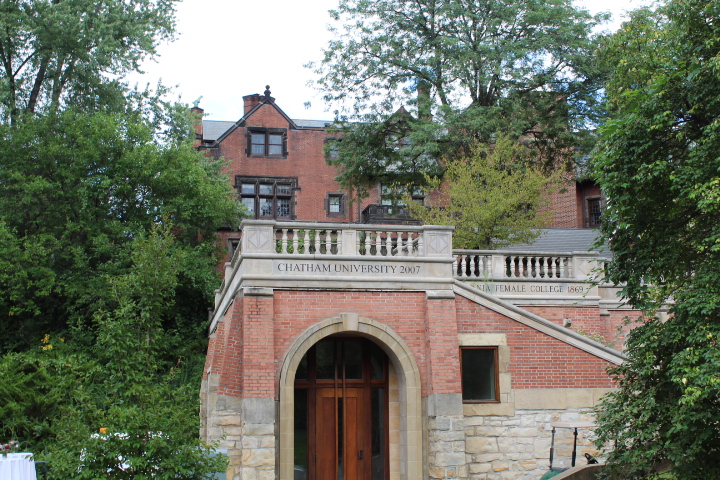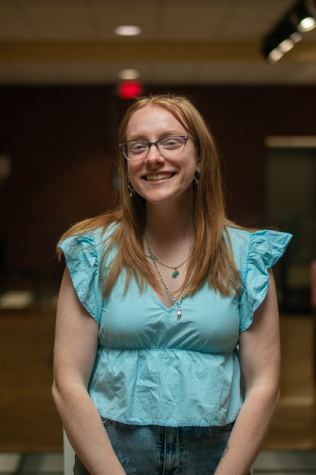Chatham University Strategic Plan released; community asked to provide feedback
September 17, 2022
In an email sent to the community earlier this week, President Dr. David Finegold released the draft of Chatham University’s new strategic plan.
“I am pleased to share a draft of the new strategic plan which will help guide Chatham University over the next five years and beyond,” he wrote.
The strategic plan determines key priorities for the University and how Chatham plans to achieve those priorities in the years to come.
The Chatham community is invited to give suggestions on what it would like to see in the strategic plan before it is finalized and sent to the Board of Trustees.
The deadline to submit suggestions about the strategic plan is Sunday, Sept. 18.
Here’s an overview of what’s included in the plan:
I. Strategic Plan and Strategic Planning
Context Planning
This plan will build on the last strategic plan, which was created in October 2017.
Highlights of the previous plan included the transition to an all-gender undergraduate institution, completion of the first phase of the $45 million build-out of the Eden Hall Campus and the reorganization of the University into four separate schools.
Goals for the new plan were broken into five categories: “Enhance Academic Excellence and Student Experience,” “Expand Our Leadership in Health and Sustainability,” “Improve Access and Affordability Through Innovation,” “Build University Capacity and Capabilities” and “Improve Financial Sustainability.”
Process
The strategic plan was created by the Strategic Plan Steering Committee, with representatives from students, faculty, staff, administrators, alumni and the Board of Trustees. There were also five affiliated work groups, community partners, employees, finance, students (academics) and students (co-curricular).
There were 18 focus groups Dr. Finegold held with hundreds of employees across different areas of campus to ensure that each area was represented in the plan.
II. Mission, Values and Vision Statements
Mission
The mission statement explains what Chatham wants to accomplish, why it exists and the ultimate result that should be expected from its work.
“Chatham University prepares students to lead lives of purpose, meaning and fulfilling work. Through a combination of liberal arts and professional skills building, and close engagement between students, faculty and staff, Chatham teaches its graduates to be informed and engaged citizens in their communities; to welcome and respect diversity of all kinds; and to help improve the fields and communities where they work and live,” reads on Page 10 of the mission statement of the strategic plan.
Values
Values statements are there to state what Chatham stands for and the way it intends to conduct its activities.
Each value has a statement written along with it to describe Chatham’s commitment to the said value.
These values include academic excellence; civic and community engagement; diversity, equity and inclusion; employee engagement and empowerment; global and intercultural education; gender equity; respect and civility and sustainability.
Vision
The vision statement refers to what the University wants to become, highlighting the specific characteristics that will explain what Chatham is in the future.
“Chatham will be recognized as a leading urban liberal arts university providing transformative learning experiences – in the heart of a vibrant college city, Pittsburgh – that engage students in building professional skills, preparing for lives of purpose, meaning and fulfilling work and creating a more equitable, healthy and sustainable future for us all,” reads the vision statement on Page 12 of the draft.
III. Strategic Priorities
In the draft of the strategic plan, Chatham highlighted six core elements that will ensure that Chatham is able to effectively compete with other urban liberal arts universities.
These elements include enhancing the student experience, enhancing the employee experience, investing in the campuses and infrastructure, continuing to advance leadership in sustainability, creating a more diverse, equitable and inclusive campus and strengthening the University’s long-term financial capacity.
The draft continued by explaining each element in its entirety, the objective of each element and the plans already in progress for completing these goals.
“Now that we have synthesized all we have learned and heard into an ‘almost final’ draft Plan, we would welcome your feedback so that those who have contributed their suggestions this past year can see where we landed,” Dr. Finegold said in his email to the University “We also understand that we have many new members of the Chatham community – faculty, staff and students – who were not part of the planning process last year and who might like to have an opportunity to share their thoughts as well.”
The Chatham community is urged to submit their suggestions so the committee can finalize the draft before it goes before the Board of Trustees in October.








